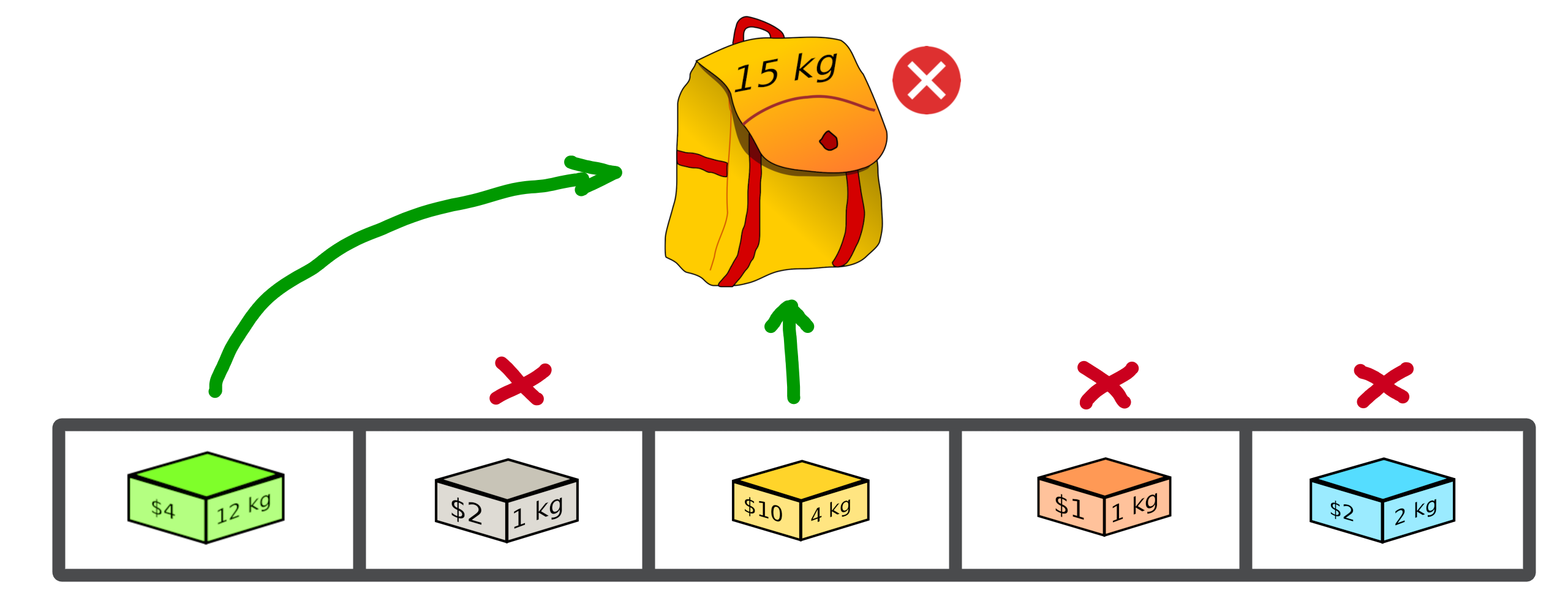4. Validate a solution¶
When an optimisation problem requires respecting certain constraints, Macop allows you to quickly verify that a solution is valid. It is based on a defined function taking a solution as input and returning the validity criterion (true or false).
4.1. Validator definition¶
An invalid solution can be shown below where the sum of the object weights is greater than 15:

In fact, [1, 0, 1, 0, 0] is an invalid solution as we have a weight of 16 which violates the knapsack capacity constraint.
To avoid taking into account invalid solutions, we can define our function which will validate or not a solution based on our problem instance:
"""
Problem instance definition
"""
elements_score = [ 4, 2, 10, 1, 2 ] # worth of each object
elements_weight = [ 12, 1, 4, 1, 2 ] # weight of each object
"""
Validator function definition
"""
def validator(solution):
weight_sum = 0
for i, w in enumerate(elements_weight):
# add weight if current object is set to 1
weight_sum += w * solution.getdata = )[i]
# validation condition
return weight_sum <= 15
4.2. Use of validator¶
We can now generate solutions randomly by passing our validation function as a parameter:
"""
Problem instance definition
"""
...
"""
Validator function definition
"""
...
# ensure valid solution
solution = BinarySolution.random(5, validator)
Caution
If the search space for valid solutions is very small compared to the overall search space, this can involve a considerable time for validating the solution and therefore obtaining a solution.
The validation of a solution is therefore now possible. In the next part we will focus on the evaluation of a solution.